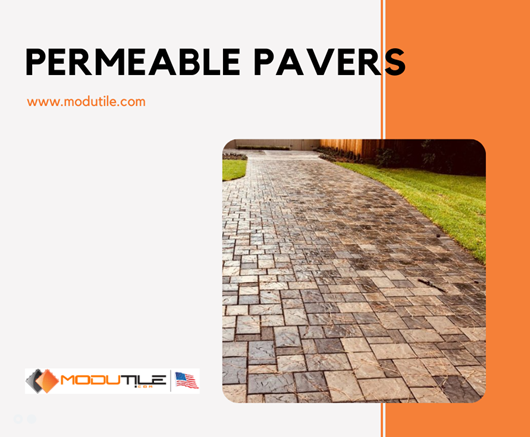permeable pavers are an excellent choice for pathways or walkways that require durability and drainage capabilities. Pavers with permeable surfaces improve water drainage and reduce rutting. Moreover, because of its improved structural integrity, it will reduce gravel runoff.
The use of permeable pavers, a fundamental component of sustainable building, is significantly influencing urban planning and landscaping. These environmentally beneficial substitutes for conventional pavement deal with issues like pollution, soil erosion, and storm-water runoff.
This article examines permeable paver kinds, applications, installation methods, and advantages. This book provides all the information you need, whether you're a homeowner remodeling your driveway or a city planner looking for eco-friendly alternatives. Water can seep through permeable pavement and into the gravel and soil layers. It makes use of distinctive products that have patterns or grids made of grass or gravel.
Water can seep through permeable pavement and into the gravel and soil layers. It makes use of distinctive products that have patterns or grids made of grass or gravel. These strong, long-lasting goods retain their permeability even under stressful situations like traffic and large loads.
They are an environmentally sustainable paving option that can improve the visual appeal of the landscape. These goods lessen storm-water runoff, which is an issue in metropolitan areas, and help alleviate urban heat islands. They are perfect for both business and residential use because they are less upkeep and easier to install than regular pavement.
